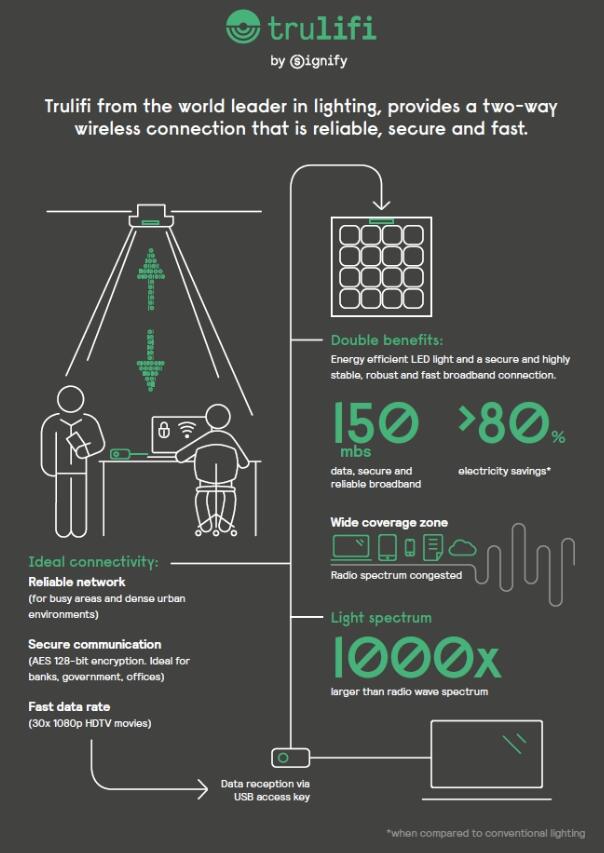After lots of talking about visible lighting communication, or LiFi (Light Fidelity), Signify announced the launch of Trulifi, a new range of LiFi systems. The world’s largest lighting company also reported two new customers of the systems.

According to Signify, the LiFi systems, branded Trulifi, leverage existing and future professional luminaires for fast and reliable data transmission. Trulifi uses optical wireless transceiver technology built, or retrofitted, into Philips luminaires. Customers can use their current lighting infrastructure to power wireless connectivity. Only a USB-access key, plugged into a laptop, is needed to receive the LiFi signal and acts as an emitter to send data back to the luminaire.
The new range comprises Trulifi-enabled luminaires providing wireless connectivity at speeds up to 150 Mbps over large spaces, such as meeting rooms and office floors. The Trulifi range also includes a fixed point-to-point system, up to 250 Mbps speed, which acts like a wireless cable, ideal for connecting devices. Potential applications include connecting robots or machines in radio frequency (RF) harsh environments like industrial plants, or hospitals where RF communications may not be permitted.
Two customers have installed Trulifi system to enjoy the connection. The largest institutional investor and office landlord in Poland and Romania, Globalworth, has installed 18 Trulifi-enabled Philips luminaires in its office in Warsaw, Poland, providing reliable and extra-secure communications for its corporate clients. Also Claerhout Communication Campus, a Belgian marketing and communications agency has retrofitted Trulifi into four connected Philips LED luminaires in a large meeting room in its office in Ghent.
“Trulifi underlines our strategy to unlock the potential of light to address new high-growth markets,” explained Olivia Qiu, Chief Innovation Officer at Signify. “Through our global presence, large installed base and industry knowledge, we’ll help existing and new customers to leverage their lighting infrastructures to receive reliable, secure, high-speed wireless communication at a very competitive price-point. Wherever there’s light, there can now be wireless communication.”
June.20, 2019 ledinside.com


